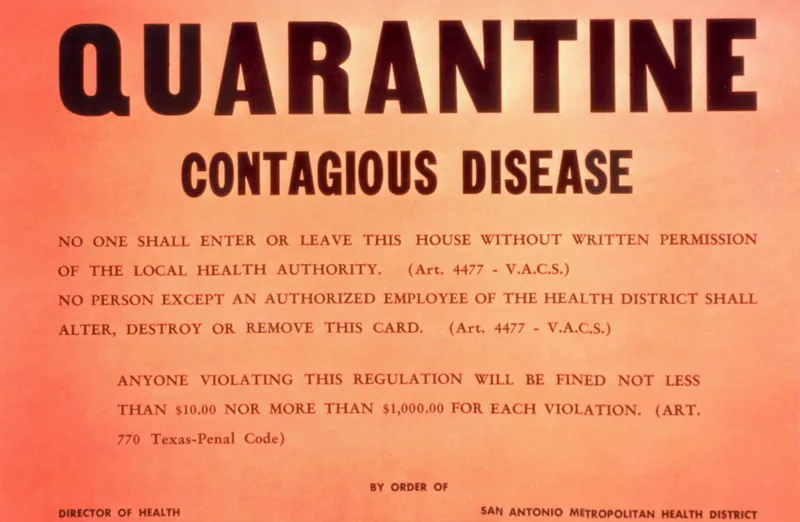
Crisis Management Strategies
Handling a crisis involves quick, transparent communication to manage your brand’s reputation and minimize damage. It can protect customer trust but requires preparedness and clear protocols. Balancing immediate action with long-term recovery plans is essential for effective crisis management.
Sub-strategies
| Name | Description |
|---|---|
| Crisis Communication Strategy | Responding effectively to negative events to protect your brand's rep… |
| Recovery Marketing Strategy | A strategy to regain customer trust and market position after a setba… |
| Reputation Management Strategy | Monitoring and influencing how your brand is perceived online and off… |
Related Tactics
| Name | Description | Difficulty | Cost |
|---|---|---|---|
| Partner with nonprofits or community organisations to support causes | Teaming up with nonprofits or community organizations to support caus… |
Intermediate
|
Medium
|
| Partner with reputable publications for positive brand coverage | Working with trusted publications can elevate your brand's visibility… |
Intermediate
|
Medium
|
| Post-crisis, conduct a debrief to learn and improve future strategies | After a crisis, holding a debrief session can be really useful. It he… |
Intermediate
|
Medium
|
| Regularly audit and remove toxic or low-quality backlinks | Conducting regular audits to spot and remove toxic or low-quality bac… |
Intermediate
|
Medium
|
| Regularly audit online content for brand compliance and reputation | Regularly reviewing your online content ensures it fits your brand gu… |
Intermediate
|
Medium
|
| Regularly conduct crisis simulations to prepare teams | Running crisis simulations helps organizations to prepare their teams… |
Intermediate
|
Medium
|
| Regularly evaluate community relations strategies to ensure alignment | Regularly evaluating community relations strategies helps ensure alig… |
Intermediate
|
Medium
|
| Regularly report on sustainability progress to build trust and transparency | Build trust and transparency with your audience by regularly reportin… |
Intermediate
|
Medium
|
| Regularly update media lists to ensure relevance | Keeping your media lists up-to-date helps to target the right journal… |
Intermediate
|
Medium
|
| Train spokespeople to handle media and public inquiries | Building strong spokespersons for media and public inquiries boosts b… |
Intermediate
|
Medium
|
Related Tools
| Name | Description | Pricing | Ease of Use |
|---|---|---|---|
| Agility PR Solutions | Agility PR Solutions offers cutting-edge tools for public relations p… |
Paid Only
|
Moderate
|
| Brand24 | Brand24 is a powerful social listening tool designed for marketing pr… |
Paid Only
|
Moderate
|
| BrandYourself | BrandYourself is an innovative marketing tool designed to empower pro… |
Paid Only
|
Moderate
|
| Brandwatch | Brandwatch is a sophisticated digital marketing tool designed to empo… |
Paid Only
|
Moderate
|
| Business Wire | Business Wire is a leading global platform specializing in press rele… |
Paid Only
|
Moderate
|
| Cision | Cision is a comprehensive marketing tool designed to enhance brand aw… |
Paid Only
|
Moderate
|
| Critical Mention | Critical Mention is a leading media monitoring and analytics platform… |
Paid Only
|
Moderate
|
| Emplifi | Emplifi is a comprehensive marketing tool designed to enhance brand a… |
Paid Only
|
Moderate
|
| Falcon.io | Falcon.io is a comprehensive marketing platform designed for social m… |
Paid Only
|
Moderate
|
| GlobeNewswire | GlobeNewswire is a premier news distribution network that empowers bu… |
Paid Only
|
Moderate
|
Quick Facts
Strategy Type
Marketing Strategy
Pros
- Rapid Response: Effective crisis management strategies ensure a swift response to issues, minimizing potential damage and maintaining control over the situation.
- Protects Reputation: Proactive crisis management helps safeguard the brand’s reputation by addressing problems transparently and effectively, preserving public trust.
- Customer Trust: Handling crises well can enhance customer trust and loyalty, demonstrating the company’s commitment to accountability and reliability.
- Minimizes Financial Losses: By quickly addressing and resolving crises, businesses can reduce financial losses associated with negative publicity, lawsuits, or operational disruptions.
- Improves Preparedness: Developing and practicing crisis management strategies improves overall organizational preparedness, making the team more capable of handling future issues.
- Enhances Communication: Clear and consistent communication during a crisis keeps stakeholders informed and reassured, reducing confusion and panic.
- Strengthens Team Coordination: Crisis management strategies foster better coordination and collaboration within the team, ensuring a unified and effective response during critical situations.
Cons
- High Stress Levels: Managing a crisis can create high stress and pressure for the team, potentially leading to burnout and decreased productivity.
- Resource Intensive: Crisis management strategies require significant resources, including time, money, and personnel, which can strain the organization’s operations and budget.
- Potential for Miscommunication: In the rush to respond quickly, there is a risk of miscommunication or inconsistent messaging, which can exacerbate the situation and damage trust.
- Short-Term Focus: Emphasizing immediate crisis resolution may lead to short-term thinking, neglecting long-term strategic planning and growth.
- Reputational Risk: Poorly executed crisis management can harm the brand’s reputation more than the initial crisis, leading to lasting negative perceptions.
- Legal and Compliance Challenges: Navigating legal and regulatory requirements during a crisis can be complex and time-consuming, increasing the risk of non-compliance.
- Opportunity Cost: Focusing on crisis management diverts attention and resources from other important business activities, potentially hindering overall progress and innovation.